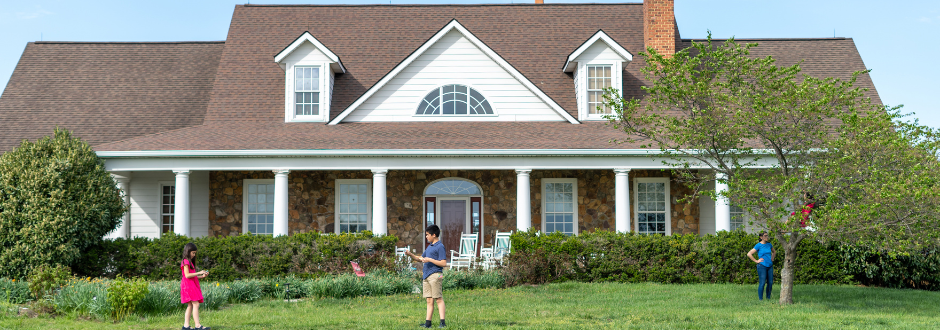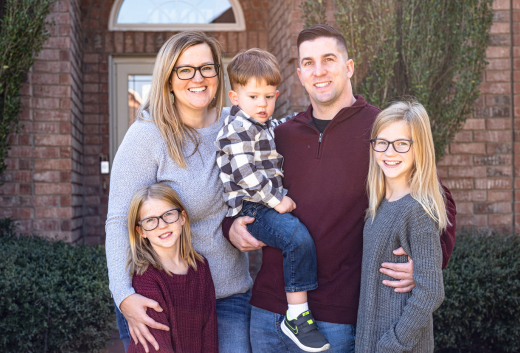This summer, much of the United States is experiencing wearying, activity-squashing heat that reaches into the triple digits.
The EPA defines an “extreme heat event” as a series of hot days that are much hotter than the average for a particular time and place. For example, in Minneapolis, a series of days topping out at 92°F could be considered extreme heat, whereas on those same days in Phoenix, the temperature would have to reach above 100°.
While both unusually hot days and heat waves can be considered natural parts of the weather patterns in the U.S., scientists say that since the 1960s, heat waves have lasted longer and been more frequent and intense. In fact, they warn, 2024 could break heat records for a second year in a row.
Moving? Get our free homebuying guide.
Sweet Tea and Shade, Anyone?
Going from the temperate areas surrounding Camp Pendleton in San Diego County, CA to Camp Lejeune in Jacksonville, NC in the midst of summer would be an eye-opener. While San Diego has infrequent hot days, temperatures in the Carolinas regularly get into the mid-90s, and the climate is humid — measured by the heat index, or how hot the temperature feels to the human body.
If you’re in a hot and humid area and can stay inside a well-insulated and air-conditioned home or office during the day, that’s a great option. If you need to be out and about, though, be sure to drink enough water to prevent heat illness, which can be deadly. Signs of heat illness include having a high body temperature (103°F or higher), a fast pulse, headaches, dizziness, confusion and nausea. Some people may even lose consciousness (pass out).
Heat illness is a medical emergency and should be attended to by professionals, notes the CDC (more info). If you or someone else has these symptoms, call 9-1-1 and, if possible, move them to a cooler place to help lower their body temperature.
Related: 5 Ways to Boost Backyard (or Front Yard) Fun This Summer.
Staying Hydrated
An average person needs to drink about 3/4 of a gallon of water daily to maintain good health, but of course, your needs will vary by your age, activity level and the heat. The water you take in and sweat out when it’s hot evaporates into the air to help your body cool down. When you’re exposed to extreme temperatures, it’s harder for your body to keep pace with its ability to cool you down. If your environment is hot and humid, sweat doesn’t evaporate as easily, and that can push your body’s temperature even higher.
The key to helping your body stay cool starts with being well-hydrated. It may sound odd, but the color of your urine is a good indicator of hydration level. A dark yellow color can indicate that you’re not drinking enough water. Sugary, caffeinated and alcoholic drinks may also contribute to dehydration.
If you must be outside and are sweating a lot, try combining water with snacks or a sports drink to replace the salt and minerals lost through normal sweating.
Pay Attention to Your Pets
As the weather heats up, don’t overlook the effect on your pets. During the hottest parts of the day — typically between 11 a.m. and 2 p.m. — bring them inside. While they are out, they’ll need shade and access to cool water at a minimum, whether that’s an awning, a pet enclosure, or an umbrella, a kiddie pool or bowl of drinking water. Also, never leave them alone in a car especially if there’s no shade or air conditioning running. On a 90° day, which could be early in the morning in many areas, temperatures can reach 108°F inside your vehicle after only 10 minutes.
Cooling Your Home
Ahhh, air-conditioning.
If you have central air, have the unit checked by a pro, and the filter changed at least annually. You can help maximize its effectiveness by keeping doors and windows closed as much as possible and making sure vents are open and clear (no furniture blocking the airflow).
When outside temperatures are pushing 100 degrees, set your thermostat at 78-80°F. Ideally, your air conditioner should run for 15 minutes on “warm” days, but on those ghastly triple-digit temperature days, it’s probably going to be running almost all the time during daylight hours. If your air conditioner isn't following this pattern, you may have a problem.
Pros recommend running your air conditioner early in the day to keep your home cool before the heat sets in. When your home is already hot, it takes a lot more energy to bring the temperature down.
That extra effort could be costly. Your air conditioner will automatically shut off if its compressor becomes overheated, which can cause the coolant to break down and damage the entire system. (Again, you should have your system checked at least annually to prevent problems like this.)
If the power goes out from a summer storm, so will your air conditioning. If the power is out for a sustained amount of time, you’ll need to have a plan to keep everyone safe and at a reasonable temperature. Consider going to a public place that’s cool like an indoor shopping mall. Some cities will also offer cooling centers. Be sure to plan ahead for your electrical needs, including cell phones and medical equipment, in case your stay at a cooling center is extended.
We’re Here to Help
Whether you’re thinking about buying, ready to start home-shopping in earnest, or considering a refinance, an AAFMAA Mortgage Services LLC Military Mortgage Advisor will be happy to provide you with an honest and fair comparison of your mortgage options, including a wide range of affordable mortgages designed to meet your needs. Ensuring AAFMAA Members obtain the best mortgage possible is our mission. Get your free mortgage assessment today or give us a call at 844-422-3622!



.png)

.webp)